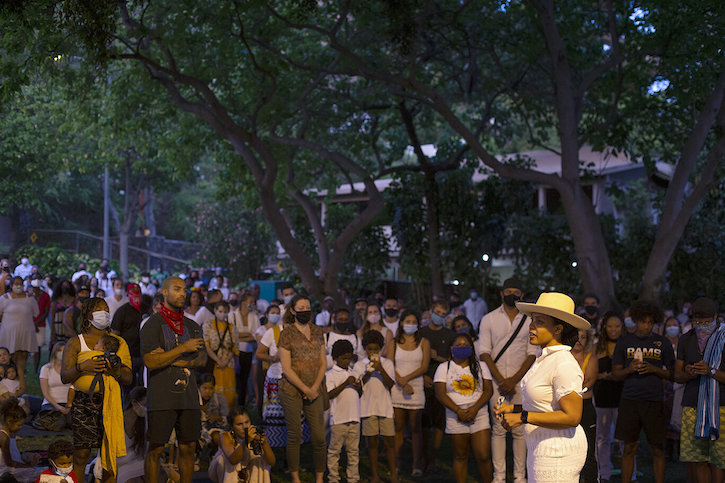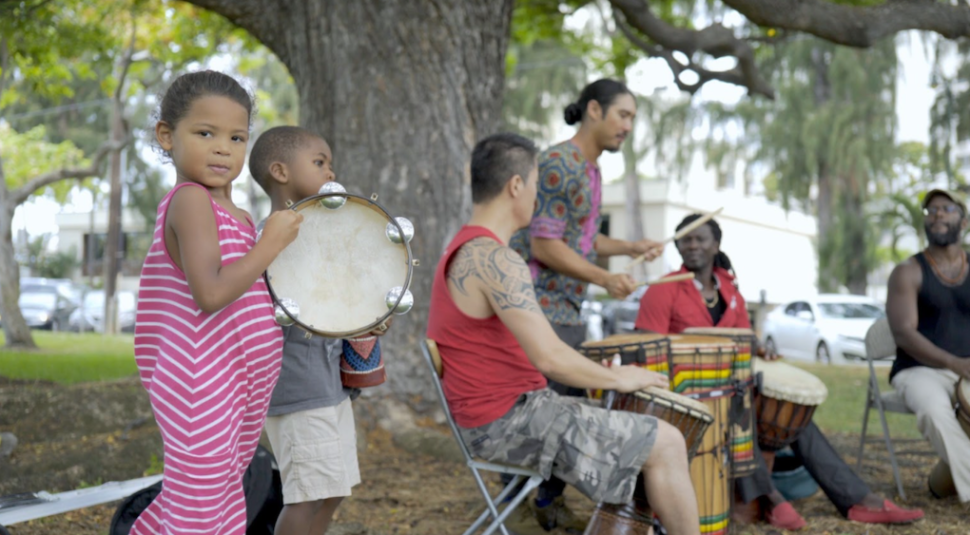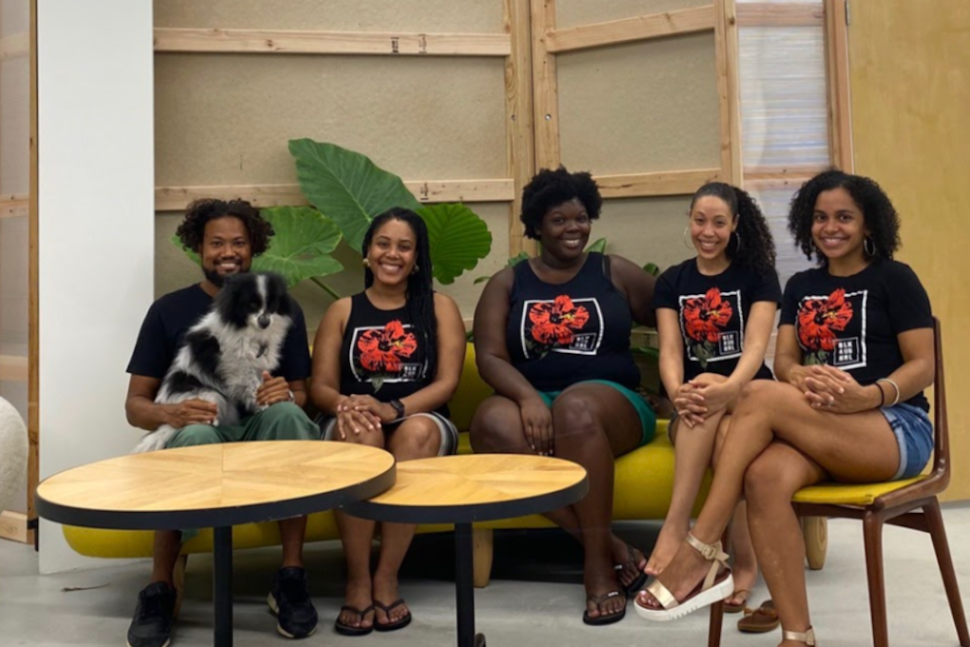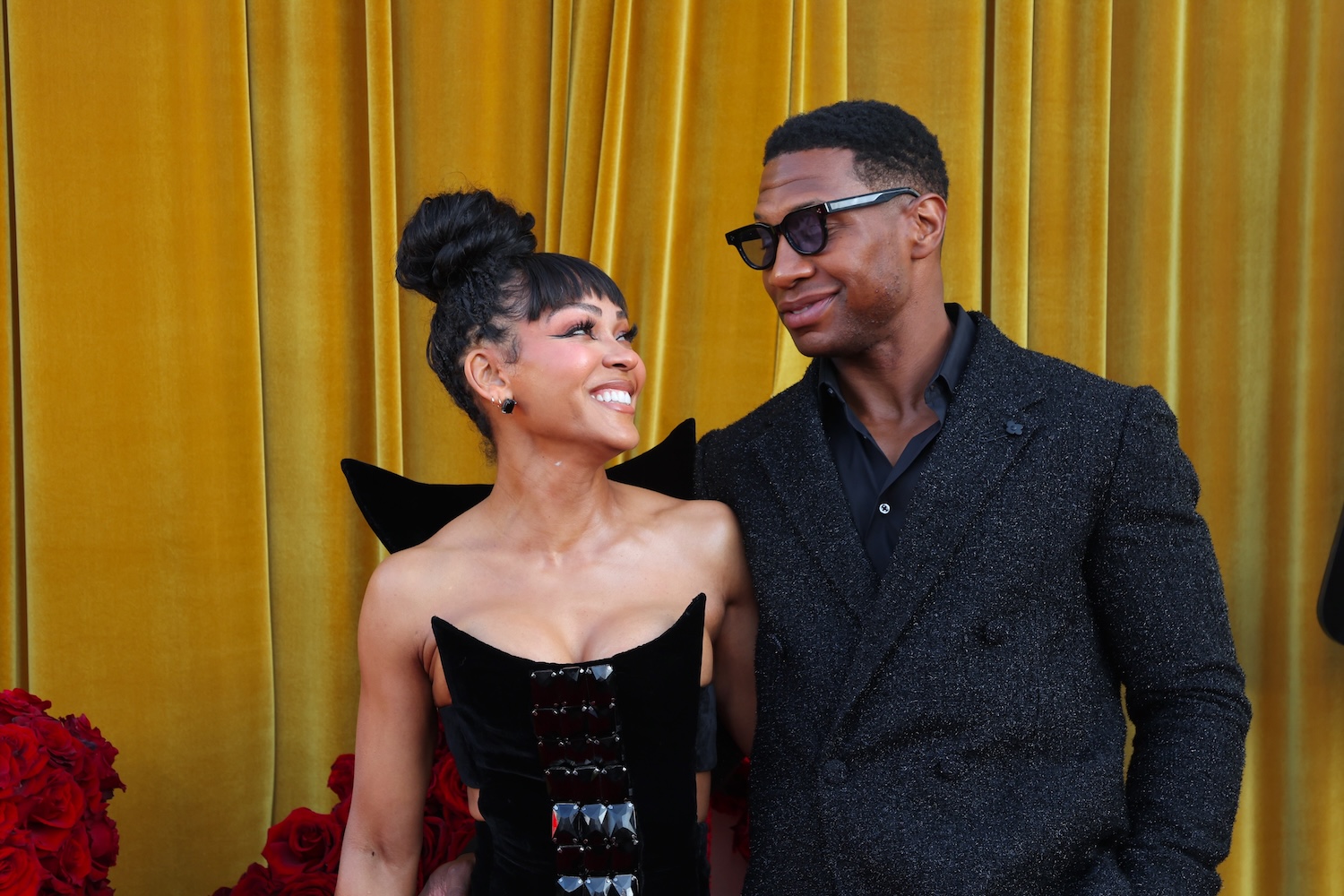For many Black Americans, the islands of Hawai’i have been seen as a place of refuge from the vestiges of racism that still exist after 400 years of systemic racism and remains prevalent throughout the United States.
Although this romanticized idea of what the paradisaical landscape appears to be on the surface, it is not reality for the 2% of Black residents who reside on Hawai’i’s most populated island, Oahu.
“One of the big challenges for me when I first moved here was the experience of living in a Black body in this place,” culture-worker, Dr. Akiemi Glenn told Travel Noire.
She is the founder of the Pōpolo Project, a Honolulu-based nonprofit founded 4 years ago that urges for the visibility of Black locals who live on Oahu. Dr. Glenn studied at the University of Hawai’i at Manoa where she earned her M.A. and Ph.D. in linguistics and started her grassroots approach towards hindering the erasure of Black and indigenous culture in the aloha-state.
Similar to the 100,000 local military personnel in Hawai’i, Dr. Glenn grew up in a military family that moved around many times, which led her to become a resident of Hawai’i. She has lived for 18 years now. Coming from New York City where she earned her B.A. in linguistics at NYU, the culture shock that Dr. Glenn was preparing herself for was nowhere near-insurmountable, especially regarding her longstanding passion for local work that drives to bridge the gap between minority communities for future long-term impact.
“Some of the work that we do is, is to bring out our larger community and our small Black community into conversation about what these experiences have been for many of us.”
“A touchstone for me and for many in our community in the last few years was the initial way and, even subsequently, how our community dealt with news of police violence against Black people in North America,” Glenn said. “I remember when Trayvon Martin was murdered and the trial of George Zimmerman was ongoing, I heard people who were my friends and associates and colleagues, say things like, ‘oh, you must be glad you live in Hawaii.'”
In the 1800s, many Black men sought economic opportunity with the overall intention to flee systemic racism which contributed to this tumultuous yet idealized notion of Hawai’i, and its unfortunate legacy of colonization.
“Our family members did not understand how we might be connected to global experiences of Blackness or why seeing racialized trauma happen in other places could affect us being so far away,” Dr. Glenn added. “It’s a very complicated place with its own colonial history.”
Related: How To Spend The Day In Black-Owned Hawaii
In 2020, the major turning point in Hawai’i’s connection to their Black inhabitants was when Dr. Glenn witnessed the rise and firm support of a large organized protest for the senseless acts of police brutality.
“Hawai’i has a lot of difficult, thorny ideas about race and who belongs here. Last summer really brought that home,” she said. “There are some people who were 100 percent in support of the Black Lives Matter movement, and we saw one of the largest protests ever in Hawaii in June when people came out to protest the killing of George Floyd.”
Even though the rallied support proved to be a massive cultural shift and an awakening for the natives and locals of Hawai’i, Black women were at the brunt of becoming socially-outcasted.
“Black women who went out in public spaces were targeted by other local indigenous Hawaiians and people saying things like ‘don’t bring Black Lives Matter here, don’t bring American problems to Hawaii.’ We are visible and invisible in this place and women in particular, going to the supermarket or going to the beach, would be very hyper-visible and the target of people working out their ideas about whether they should care about things that are happening in the rest of the US.”
Hawai’i became the fiftieth state to the United States on August 21, 1959. While uncovering this remarkable historical date, that was only 62 years ago, Glenn dissects the ambivalent relationship that Hawai’i has to the United States.
“Within that first year, Dr. King came here and met with the legislature and heralded Hawaii as this beacon of hope for what integration could look like. While part of that is true, there’s also this underlying current of the indigenous population who are very present and the most dispossessed. They’re incarcerated at rates exactly like Black people on the continent.”
Furthermore, Dr. Glenn acknowledged the beautiful and multicultural aspects of Hawai’i’s sacred landscapes and natural landmarks, but she wants Black Americans to be aware of the deep undercurrents that also take place in Hawai’i that may be difficult to assimilate to.
Dr. Glenn is trailblazing through Hawai’i’s convoluted historical past by focusing on the importance of the future and she does so through local community-building. She knows that Black visibility starts with taking up space, and that is paramount for an unprejudiced society in Oahu.







